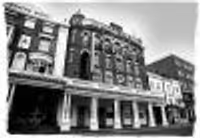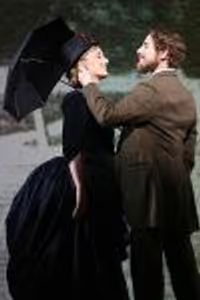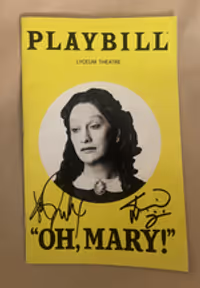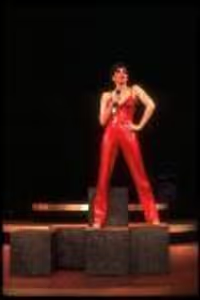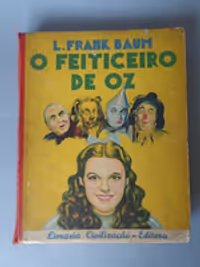PARADISE SQUARE - Broadway Previews
#175PARADISE SQUARE - Broadway Previews
Posted: 3/30/22 at 5:12am
Lumiere2 said: "But the Barrymore has a capacity of 1,058 seats - sure enough, that's how many tickets were available each night when Waitress played the same theatre just a few months ago (according to the Broadway League's reporting.) So did the Paradise Square team just, remove 80 seats from the house? While that's totally possible, I wouldn't be surprised if they intentionally aren't selling a section of seats so they can claim the house capacity is lower....therefore inflating the reported attendance."
Paradise Square is using the orchestra pit at the Barrymore, which means the removal of several rows of seats. The band for Waitress was on stage.
#176PARADISE SQUARE - Broadway Previews
Posted: 3/30/22 at 6:33am
The running time isn't the issue for me. The show's style from the top is often too broadly pageant-like for the Barrymore. It feels pitched to a musical barn like the Gershwin, and that's part of that distrust of the audience I mentioned in an earlier post: the creative team -- and it's apparently a big one with 3 book writers and 2 lyricists -- doesn't believe we'll fully grasp the story being told. From the top, the narrative informs us that 1863 is our historical antecedent -- the issues portrayed will surely resonate because it's also about today. At the end, this forced takeaway is hit so hard, the audience feels too carefully taught.
The Barrymore's size might've given the creative team an opportunity to take the presentational style down a notch. Late in act two, two women sit at a table and sing and it's the kind of musical theater intimacy we've been missing all night. The stage is forever teeming with dancing people -- we get it, it's a 19th century urban squeeze on these characters -- but it means everything is choreographed and morphed into tableau vivants. That set stays busy, spinning, offering new upstage entrances, yet everyone ends up down center announcing a plot turn. The show would benefit for more silence, some moments when the audience is allowed to lean forward, listen, overhear people wrestling with their crises. Instead, it's framed, stated, annotated. That's what makes the run time feel wearying: the repetition and seeming fear that we won't get it otherwise. Though some of this is baked into the overly didactic lyrics, this is most often directorial -- a missing vision that creates space for shifts in rhythm and pacing. It's regrettable that Kaufman pushes these gifted singing/dancing actors to oversell a story -- one decidedly worth telling -- that we're happy to find on our own.
LucasIvy
Chorus Member Joined: 3/18/22
#177PARADISE SQUARE - Broadway Previews
Posted: 3/30/22 at 8:45am
yikes! Last week's gross was $346,000, an unsustainable gross to keep this running.
#178PARADISE SQUARE - Broadway Previews
Posted: 3/30/22 at 11:10am
Auggie27 said:
"The show's style from the top is often too broadly pageant-like for the Barrymore.
- Well-described. And this is standard Drabinsky.
It feels pitched to a musical barn like the Gershwin
- A collateral problem is the one you identify in your second paragraph-that the stage is too small for the number of people and what they are doing. This is especially a problem when there is a bunch of dancing going on. Which is a lot of the time. The claustrophobic feel is exacerbated by all of the towers and galleries.
the creative team -- and it's apparently a big one with 3 book writers and 2 lyricists --
- To be fair to these people, most of them worked on the show seriatim. There was no oversized work table here. And while we are at it, I think the principal fault to assign to Kaufman is his willingness to be a placeholder for Garth. Garth's fingerprints are all over this production, pretty much to the exclusion of everyone else. (The lone exception being Jones, it seems.) When a creative had had enough of ceding their vision, they moved on. Between that and the number of people who obviously gave Garth a hard pass up front, the "team" is not that much of a team, and that's a huge problem. Everything else you say is well-observed.
The Barrymore's size might've given the creative team an opportunity to take the presentational style down a notch. Late in act two, two women sit at a table and sing and it's the kind of musical theater intimacy we've been missing all night. The stage is forever teeming with dancing people -- we get it, it's a 19th century urban squeeze on these characters -- but it means everything is choreographed and morphed into tableau vivants. That set stays busy, spinning, offering new upstage entrances, yet everyone ends up down center announcing a plot turn. The show would benefit for more silence, some moments when the audience is allowed to lean forward, listen, overhear people wrestling with their crises. Instead, it's framed, stated, annotated. That's what makes the run time feel wearying: the repetition and seeming fear that we won't get it otherwise. Though some of this is baked into the overly didactic lyrics, this is most often directorial -- a missing vision that creates space for shifts in rhythm and pacing. It's regrettable that Kaufman pushes these gifted singing/dancing actors to oversell a story -- one decidedly worth telling -- that we're happy to find on our own.
#179PARADISE SQUARE - Broadway Previews
Posted: 3/30/22 at 11:20am
Speaking as someone who sat in the rear-mezzanine, I didn't have an issue with the pitch or the size of the production, or even the staging. I actually appreciated the slightly confined feel, because it amplified the feeling of watching a vibrant community in an intimate, bustling tavern.
#180PARADISE SQUARE - Broadway Previews
Posted: 3/30/22 at 11:25am
HogansHero said: "(The lone exception being Jones, it seems.)"
Who actually choreographed what? That could be an issue come Tony time. I would say they should lump all 4 together (unlike PIPPIN, for which only the Fosse and not acrobatics were eligible). The credits are:
Choreographed by Bill T. Jones; Musical Staging by Alex Sanchez (used to be Graciela Daniele but evidently she's gone now); Irish and Hammerstep Choreography by Garrett Coleman and Jason Oremus
I'm no dance expert by any stretch, but even that seemed a little disjointed to me.
A similar conversation will be had for FUNNY GIRL, which has a "choreographer" and a "tap choreographer."
Also, add me to those who felt the size of the stage felt fine for the physical production onstage. (Though the Gershwin is an apt comparison, being that the design directive for this seems to be "do what Eugene Lee did for SWEENEY."![]()
4 days to Opening...
#181PARADISE SQUARE - Broadway Previews
Posted: 3/30/22 at 12:53pm
@Ermengarde re all of these choreo types. I have no 1st hand knowledge here but based on what I am generally familiar with (and someone can correct my generalizations): musical staging usually describes the non-choreo aspects of staging dance numbers and is not uncommon where (as here) the director does not have much if any musical theatre experience. Not to diminish the role, it is (among other things) making sure someone is there so dancers don't kick people in the face or groin (or land on each others' feet). And I think the Irish/step/tap choreos are basically working on the special skill sets that those genres call for, so that the folks who are executing it don't look like you and I taught them how to do so. (Or hurt themselves or others.)
#182PARADISE SQUARE - Broadway Previews
Posted: 3/30/22 at 5:30pm
In this oversized production, “Paradise” is lost.
Whew, that was a LONG sit. I wanted to like this because the premise seemed promising on paper, but it ended up feeling like a relentless assault on the senses in an attempt to be seen as a VERY IMPORTANT MUSICAL (TM). Instead, it felt like “The Last Ship” and “Ragtime” had a love child that grew up to be “Les Mis”.
The story had absolutely NO room to breathe and exist and that was profoundly annoying because I’m sure there was something good to be found in there. Whatever story I could cull from this was complicated by the fact that there were too many character threads and they often seemed to get lost or tangled in the relentless ALL SINGING-ALL DANCING production of it. It seems the composers and choreographers didn’t consider that throwing in everything and the kitchen sink doesn’t necessarily make the show better.
I need to make clear though that NONE of this is the fault of the cast, who clearly work their asses off to deliver the endless parade of pageantry. The singing MVP was Kalukango, naturally, and she has her slot in the Tony race set, especially after the two minutes of applause following “Let It Burn”. Sidney DuPont was the dancing/supporting actor MVP and I could see him sliding into that race himself.
Overall, I give this a C+, because the cast kept this from being a total misfire for me. Although, in the words of Ethel Merman, “‘I thought it was a piece of s***, but the rest of the audience [clapped] and cried, so what the f*** do I know?’”
#183PARADISE SQUARE - Broadway Previews
Posted: 3/30/22 at 10:49pm
Just stumbled across this. Haven’t ’ finished it yet, but thought I’d pass along…
https://www.csmonitor.com/The-Culture/Arts/2022/0330/Broadway-s-Paradise-Square-is-enthralling-spectacle-of-history
#184PARADISE SQUARE - Broadway Previews
Posted: 3/31/22 at 1:27pm
The show hasn't opened, and the CSM review is already up?
#185PARADISE SQUARE - Broadway Previews
Posted: 3/31/22 at 1:41pm
markypoo said: "The show hasn't opened, and the CSM review is already up?"
Read it. It's not a review. The journalist saw it in Chicago, and then interviewed Moisés Kaufman, Gelan Lambert, and Joaquina Kalukango.
#186PARADISE SQUARE - Broadway Previews
Posted: 4/2/22 at 6:48pm
Here is a big NYT piece on Garth by Richard Zoglin.
An interesting quote: "Drabinsky stressed, he is not in charge of the show’s finances — an arrangement made explicit by the limited partnership formed to bring it to Broadway. “I walked away from every element of fiscal control of this show,” he added. “I don’t sign checks. I don’t get involved. I never want to live through the horror of what I went through in 1998 again.”"
HOWEVER, he then goes on to say, "I made the decision, in terms of marketing, that our best course was to ensure that we filled the previews to capacity at whatever average ticket price we could get, and let word of mouth take over"......which is very much a financial decision.
Going by publicly-available SEC data amended yesterday, all the money is in as of April 1 ($13.5M), and Bernard Abrams is Managing Member of the LLC, despite Garth being the only Producer (there are numerous others above the title "in association with," including Abrams). Press performances are happening today. Both of these things dispute a rumor floating around yesterday on social media.
Is Chilina Kennedy still out with COVID, or will the understudy be playing press nights and Opening?
#187PARADISE SQUARE - Broadway Previews
Posted: 4/2/22 at 7:00pm
She was supposed to be back today, ahead of tomorrow's opening.
Updated On: 4/2/22 at 07:00 PM
Tom-497
Featured Actor Joined: 12/18/05
#189PARADISE SQUARE - Broadway Previews
Posted: 4/3/22 at 1:20am
I saw this evening's performance and, despite really looking forward to this show, I share the above-noted Ethel Merman view -- I don't think I've seen a worse Broadway musical, but a lot of the audience seemed to love it. I actually thought the first act was decent, but the second was such a horribly written (and ridiculously plotted) slog that it dragged down my overall opinion.
I was surprised at how dull so much of the dancing was and annoyed by how, during the dance competition, the choreography had to (it seems) be intentionally mediocre for one number just so the winning number could more readily contrast with it. I also was bothered by the way one character kept coming back to the bar rather than escape to safety -- although I frequently feel this way while watching bad action and horror movies, I think this was the first Broadway musical I've seen where I started hoping a character would pay for their repeated stupidity with their life.
BentleyB
Featured Actor Joined: 4/4/17
#190PARADISE SQUARE - Broadway Previews
Posted: 4/3/22 at 6:18am
Tom-497 said: "I saw this evening's performance and, despite really looking forward to this show, I share the above-noted Ethel Merman view -- I don't think I've seen a worse Broadway musical, but a lot of the audience seemed to love it. I actually thought the first act was decent, but the second was such a horribly written (and ridiculously plotted) slog that it dragged down my overall opinion.
I was surprised at how dull so much of the dancing was and annoyed by how, during the dance competition, the choreography had to (it seems) be intentionally mediocre for one number just so the winning number could more readily contrast with it. I also was bothered by the way one character kept coming back to the bar rather than escape to safety -- although I frequently feel this way while watching bad action and horror movies, I think this was the first Broadway musical I've seen where I started hoping a character would pay for their repeated stupidity with their life."
I have to agree completely with the above, except I thought Act 2 was better than 1, probably because it was shorter and didn’t feel like I was being tortured for 1.5 hours in the mezzanine seats with little leg room. A friend’s 17 year old daughter had the best review. “I wish they all had died in the fire and riot.”
#191PARADISE SQUARE - Broadway Previews
Posted: 4/3/22 at 9:42am
The dark Zoglin piece in the NY Times is not exactly the day-before-opening feature you want for a show already weighed down by intra-industry skepticism. Focusing on the much shamed producer with a checkered past instead of the creatives may be necessary -- he's the biggest name involved -- but it's not what this show needs, out of the gate. I doubt David Merrick would've wanted a piece on David Merrick the day before an opening. I was somewhat startled that so much attention had been paid to the heavy papering and box office reports, not unprecedented reporting but not exactly routine opening weekend story fodder. The best spin you can say -- and okay, a stretch -- the show is being presented as that spring root-for-against-staggering-odds. If the reception is mixed but with a couple of raves, the naysaying here, and I'm sadly among them, will be a mere footnote.
Reading the Times, I felt bad for the very gifted company, who are working as hard as anyone on Broadway right now. The dancing is non-stop and surely takes its toll, particularly if rehearsals are included on non-matinee days. This is a young and mega-talented group, with a helluva leading lady. We want everyone to be appreciated. They deserve it. Yet reading many of the reports on Showscore, it's clear this is at best an audience-dividing piece. The negatives are head scratching dismissals, the positives raves for the ways the show moves them. I see little in the middle. Does this show have any financial reserves for that still hoped-for word-of-mouth phenom? The next week tells the tale, whatever the press tonight.
#192PARADISE SQUARE - Broadway Previews
Posted: 4/3/22 at 10:05am
Surprised to see that there are people who thought Act 1 was stronger than act 1. I think Act 2 is WAY more successful. Act 1 needs a good 30 minutes slashed, and there are easy ways to do it too. And this is the main problem for me: the book. Much of the dialogue is very clunky. It tries to bite off A LOT (mostly in Act 1 where it basically keeps introducing major story threads. This is where they needed to cut more). And some moments are, as some have mentioned, overly presentational when it needs to pivot towards intimacy (I dont have a problem with presentational style and it works here in places, but then they didnt know when to dial down and give us genuine character moments). Also, yes Chilina Kennedy is back in, she played the press matinee saturday. Her voice is wonderful, but sadly she is the weakest actor on stage, SO over the top and steamrolls through all of the comedic moments her character is supposed to have.
However, despite qualms I still walked away glad I saw this. Joaquina Kalukango is simply divine. This is a true star making performance. Her final song gets a roaring standing O and she has many beautiful, powerful moments on stage. (She also seemed to be fighting through congestion, coughing a couple times to clear her throat so she could go for one of her epic belts...so I hope she is not sick. Especially for opening, because she deserves all the praise she is going to get). The choreography is also fabulous and I appreciated how much storytelling responsibility was given to dance. Sidney DuPont and AJ Shively are the other acting MVPS, and one or both could break into the featured acting races at the Tonys.
I was definitely moved by the story and overall enjoyed myself. There is a powerful tale here. I just wish they had really gone in an excavated the book before opening night on Broadway.
#193PARADISE SQUARE - Broadway Previews
Posted: 4/3/22 at 10:33am
I'll add: Kennedy Caughhell, who went on for Chilina Kennedy (the double Kennedys leading some to be confused) was quite wonderful as Annie. The show is lucky indeed to brim with this level of talent.
#194PARADISE SQUARE - Broadway Previews
Posted: 4/3/22 at 10:50am
Auggie27 said: "I'll add: Kennedy Caughhell, who went on for Chilina Kennedy (the double Kennedys leading some to be confused) was quite wonderful as Annie. The show is lucky indeed to brim with this level of talent."
Oh yeah. Caughell was excellent when I saw her. Had I not seen the understudy slip, I would’ve assumed she was the one opening the role (which is high praise considering the under-rehearsal of understudies in previews)
#195PARADISE SQUARE - Broadway Previews
Posted: 4/3/22 at 11:14am
The Zoglin piece feels fair –– it's not a hack job. His financial past is relevant to everything in this production, including sales and papering because even in the heyday of Livent, he did not produce shows that audiences flocked to see at top price.
By all accounts, Garth has placed himself at the center of this production and can override the creative team and bring in new people. He also has a lot more hubris than some other producers and can't help but gravitate to the spotlight.
It reminds me of the pre-opening Finding Neverland profile of Harvey Weinstein, another producer with a lot of hubris who placed himself at the center of his production. Say what you want about Scott Rudin, but at a bare minimum he knew that he should never be the focus of his productions.
If this flops in the manner some of us expects it will, I think we have to view this as the end of Garth’s time on Broadway, unless it’s like…a revival with a major star. I don’t think talent and above all investors will want any association, and theatre owners will not prioritize him.
#196PARADISE SQUARE - Broadway Previews
Posted: 4/3/22 at 11:27am
As with any show like this, I feel bad for the artists involved. They all deserve better, from the writers and creatives to the performers.
Even Jaoquina, who will probably have the best reviews, has a completely uninspired, lyrically repetitive, and ineptly staged 11 o’clock number.
Jon Dossett is a super reliable actor but has a thankless, one note role here.
#197PARADISE SQUARE - Broadway Previews
Posted: 4/3/22 at 11:30am
I went again last night and I still enjoyed it more than others did. Something about that time period has always just been fascinating to me, especially in the city. I don’t think this one is going to be around for long though, sadly.
chrishuyen
Broadway Legend Joined: 11/12/14
#198PARADISE SQUARE - Broadway Previews
Posted: 4/3/22 at 11:44am
Caught this Friday night and I think it a solid mid-tier show. There's a lot of problems with it but my biggest issue is that the music doesn't do enough to support the show. I agree with Ermengarde that the 11 o'clock number is so dull lyrically that it takes away from Joaquina Kalukango's prowess as a singer. And going into the show, I knew it was probably heavily papered, but I think the standing ovation after Let it Burn and the immediate standing ovation after the end of the show really gave it a "friends and family are in the audience" feel.
Act 2 was better than act 1 for me, as act 1 felt a little too transparently like they were just moving people into the positions they needed them to be in to set up the conflict. The characters are just a little ugh sometimes, like Mike takes a heel turn so quickly that it's hard to have any sympathy for his cause, and the way Owen complains about his plight is just so reminiscent of privileged straight white men that it's difficult to feel for him as well (I understand that part of this is intentional, but the show seems to want us to think that Owen is just a nice young lad caught in terrible circumstances). As for Stephen Foster, I don't think it's too much of a spoiler to say that they do a decent amount of calling him out for taking songs from/about slaves and black people and glorifying them for a white audience. But it seems strange that a show that brings that fact to the forefront would still also use his songs so prominently in a non-diegetic way.
The story about the Irish immigrants/free blacks was an interesting cultural conversation but I wish they emphasized the politicians and upper crust more in terms of how they maneuvered circumstances to turn those groups against each other, which would've been a much more interesting story in my opinion. The choreography was definitely the standout, but some parts of it seemed strange, like Owen's entry into the dance competition where he barely danced. Either way, a few stellar performances and a very talented cast, but generally a pretty middle of the road show.
#199PARADISE SQUARE - Broadway Previews
Posted: 4/3/22 at 12:06pm
I believe there have been standing ovations at every performance so I think they are planted ala Something Rotten?
Videos



